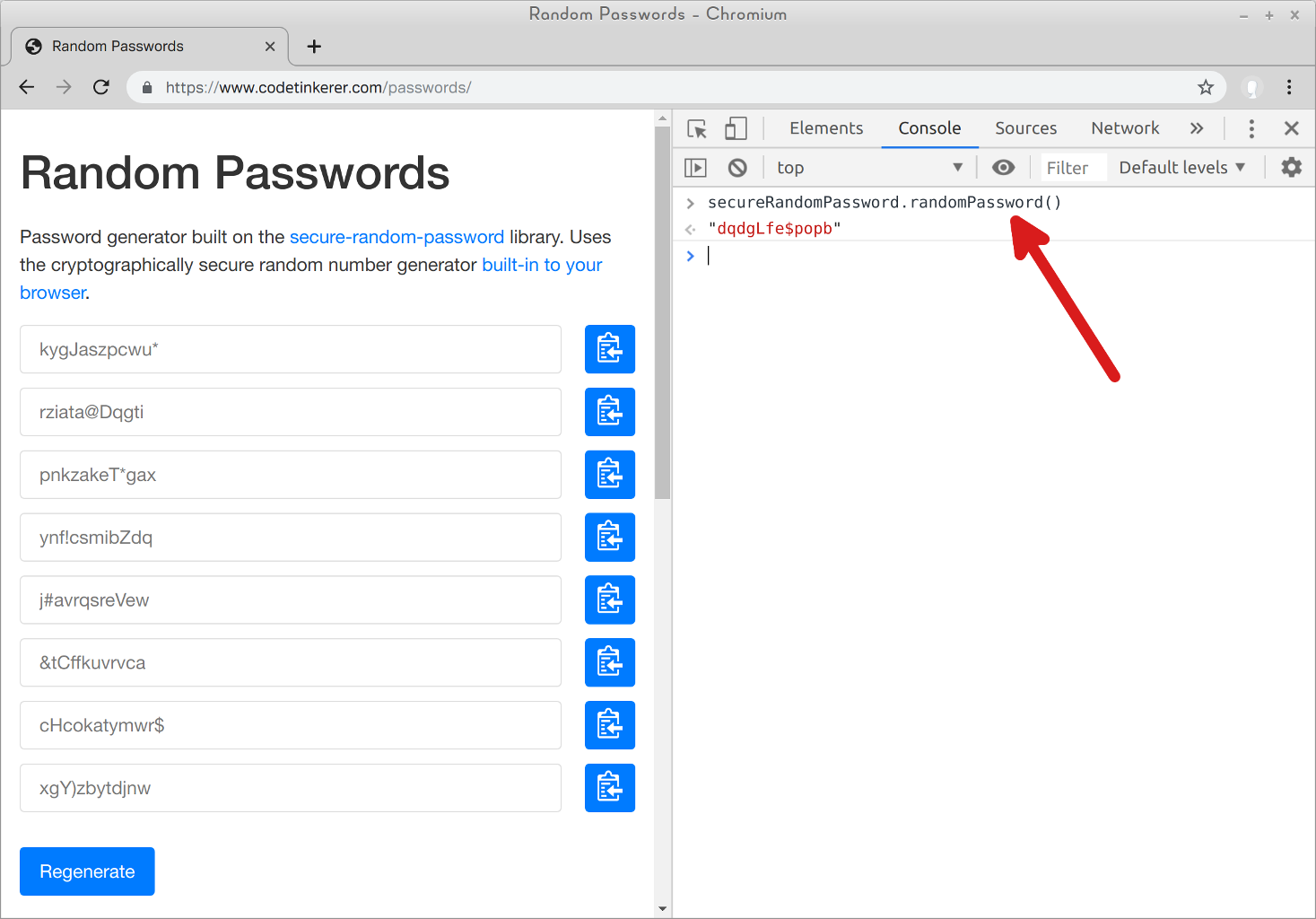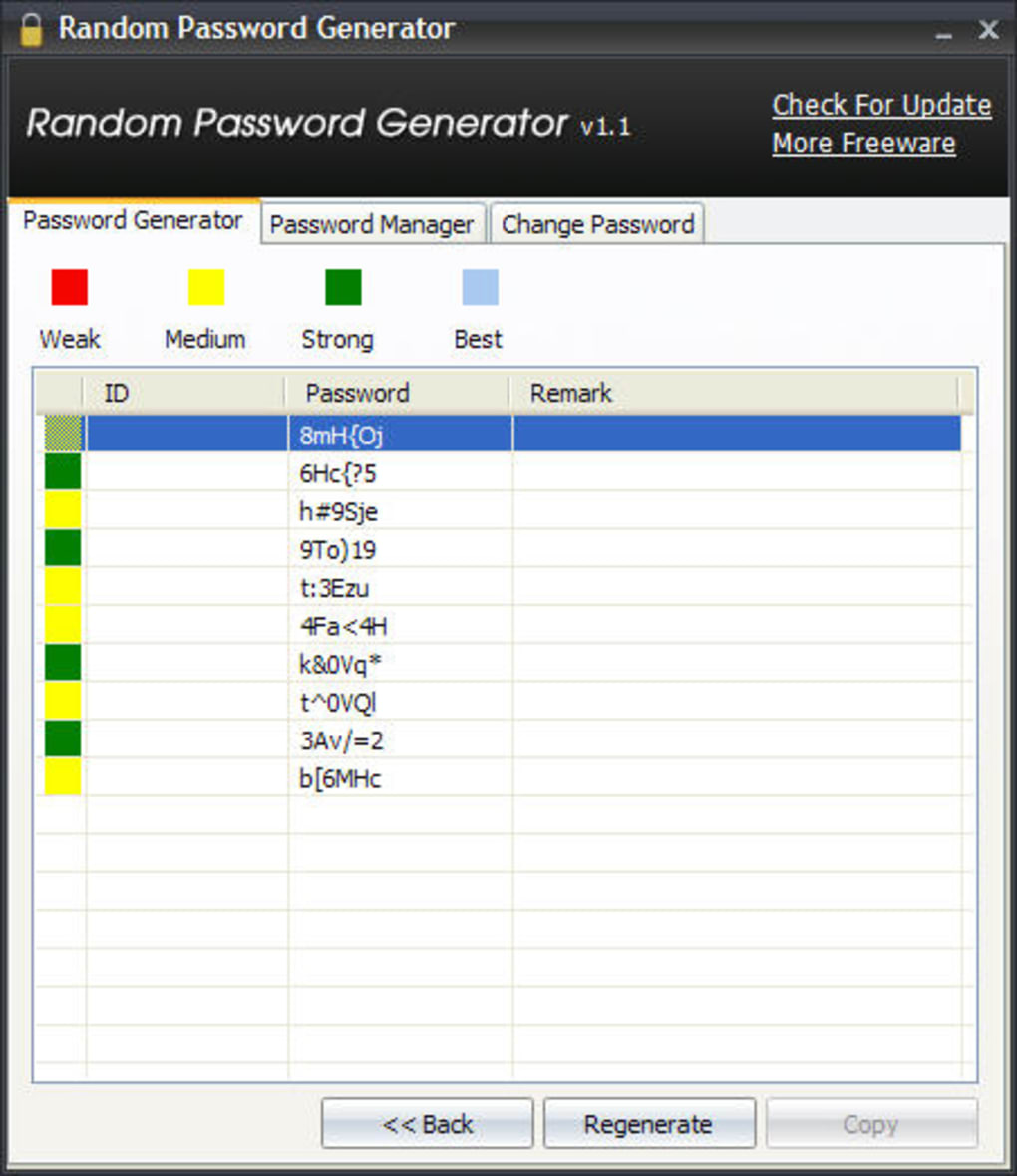

LastPass also offers an online password generator tool to instantly create secure, random passwords anytime at your convenience. You can either accept or choose to create your own password. With this feature turned on, whenever LastPass senses that you are signing up for a new online account, it will offer to create a random password for you. LastPass helps you generate a strong, unique password for every online account.Ĭlick the LastPass icon in your browser's toolbar, then select Preferences.Ĭheck/uncheck Offer to Generate Secure Passwords. Reusing passwords makes you much less secure and more vulnerable to account compromise. A very important security principle is to always use a different password for each account you create. The key is to understand that if you opt to use common tricks to help you remember your password over generating a random password, you're going to end up with one that is less secure.Whenever you sign up for a new account on a website or app, you are asked to create a password. If you find it easier to remember certain special characters over others, then you can select to only have those placed in the random password which should make it a bit easier to remember. Using emoticons at the beginning or end of passwords is also common.įor these reasons, it's much more secure to have a random password generated even though it might be a bit more difficult to remember. The same can be said of substituting "!" for an "i" or an "l". While this is using a special character, it doesn't help the security of the password much because hackers know this is a common substitute people make. In this case, they would write "trampoline" as " ". For example, a lot of people use the special character as a substitute for the letter a. The problems with common tricks to remembering the special characters in your passwords is that these tricks make your password less secure than if the special characters were random. Great, so now you know, but how on earth are you to remember them? While you can set up your personal gadgets with a 'remember me', what if you need to access that particular account from someone else's' machine - or you clear your browser history. From top to bottom they are: - _ = + | : " ', / ? Memory Games Then you have the ones down the right-hand side of your keyboard. These include ! # $ % ^ & * ( ) which all run along the top of your keyboard above the numbers. A lot of people aren't exactly sure what these special characters are, but they're simply other symbols you find on a standard keyboard.

Another common parameter is that it should contain letters, numbers and 'special characters'. For example, it may need to be a minimum of eight characters long. When you're asked to set up a password, you're sometimes given parameters of the password. What are special characters in passwords?

In fact, more and more places where you must create a password are insisting that you use at least one special character as part of your password. If you only create ones with letters and numbers, they are far less secure than those which also include special characters. The key to creating a strong password these days is to include special characters as part of your password. This will allow you to create the strongest possible password while only including the special characters you are comfortable with and will more easily remember. This Random Password Generator will allow you to create passwords while also allowing you to determine which special characters you would like to include in the password.

If you are looking to create a strong password for any of your accounts, creating a random password is an excellent way to protect them.


 0 kommentar(er)
0 kommentar(er)
